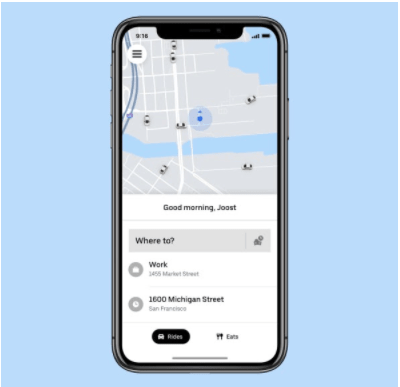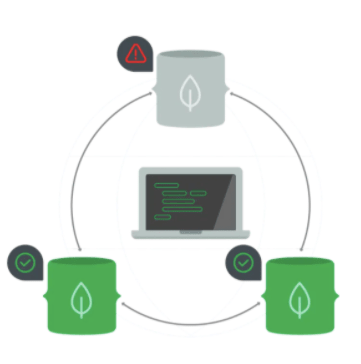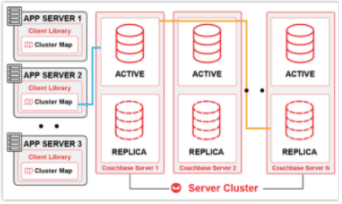How to Choose the Right Mobile App Database
- Data Modeling
- Speed and scalability
- Data synchronization & storage
- Security
Need help selecting a company?
Based on your budget, timeline, and specifications we can help you build a shortlist of companies that perfectly matches your project needs. Get started by submitting your project details.
Handle Large Amounts of Information with Data Modeling
To store a large amount of data and information, it is important for businesses to pick mobile app databases that fit their business model. Data modeling is the process of creating a visual representation of a whole system or parts of it to communicate connections between data structures and points. It illustrates what type of data is being used and stored and their relationships to each other. If your app contains search queries, reporting, or location-based features, data modeling is a helpful process to manage different types of data. For example, Uber uses several databases including MongoDB and MySQL for different aspects of their business logic.  Source With the millions of Uber riders, it is key to have multiple databases assigned to different aspects to help with scalability, ensuring that everyone who uses the service has access to the same end user experience. As mobile app information evolves rapidly, having a flexible data modeling system will be able to efficiently change as requirements do.
Source With the millions of Uber riders, it is key to have multiple databases assigned to different aspects to help with scalability, ensuring that everyone who uses the service has access to the same end user experience. As mobile app information evolves rapidly, having a flexible data modeling system will be able to efficiently change as requirements do.
Invest in Speed and Scalability
Databases are designed to optimize and support different types of data. Companies need to think about the quantity of data their app needs to store and retrieve. Based on this information, businesses can better inform which mobile app database works best for them. MongoDB is a mobile app database known for its flexibility and scalability. Used by eBay, Google, and more, the database prides itself on being fully automated and easy to use.  Source Data is stored within the cloud-based system as documents, ensuring clear and transparent distribution and efficiency. Depending on your business’s needs, selecting a database that can handle a large volume of data within a scalable architecture could be something to keep in mind.
Source Data is stored within the cloud-based system as documents, ensuring clear and transparent distribution and efficiency. Depending on your business’s needs, selecting a database that can handle a large volume of data within a scalable architecture could be something to keep in mind.
Allows for Data Synchronization & Storage
While building a mobile app, data synchronization is a critical aspect. Many mobile apps have features that allow users to work offline but require an internet connection for saving information to the server. Businesses should choose a mobile app database that automatically syncs information and data to a local server that is in close proximity. This allows users to feel confident about storing their data and allows businesses to be close to their database in case something arises. Couchbase is a full-stack cloud-based database that promises developers the opportunity to build fast and move faster.  Source The mobile app database fully supports offline sync between various platforms. The size of the information is also key to consider here – does the database contain enough space to store all of the required and relevant information? For developers and designers working on large volume projects that require a lot of storage and saving, businesses must consider a mobile app database and other program design tools that make data synchronization a top feature.
Source The mobile app database fully supports offline sync between various platforms. The size of the information is also key to consider here – does the database contain enough space to store all of the required and relevant information? For developers and designers working on large volume projects that require a lot of storage and saving, businesses must consider a mobile app database and other program design tools that make data synchronization a top feature.
Provides Security
If your data is nicely synchronized, it is important that it’s easy to access and transmit while being stored securely. Databases can store a wide range of private information that needs protection against outside dangers such as hacking and malware. Users shouldn’t have to worry about transferring information between parties as well while using a company’s mobile app. Businesses that store confidential information for external and internal use should consider mobile app databases with authentication settings. These authentication practices should allow for flexible use while protecting the data. Businesses need to ensure that all of their choices for mobile app databases have a high level of security, allowing only trusted parties access to specific information. By studying the different feature sets and product offerings of each mobile app database, companies can find which system gives them the best piece of mind.
Consider Your Business Needs When Selecting a Mobile App Database
There are many options in the mobile app database market, which makes it harder for businesses to find the right system for their mobile app offering while following mobile app trends. When evaluating their options for a mobile app database, companies need to consider:
- Data modeling capabilities
- Speed and scalability
- Data synchronization and storage
- Database security
Companies must think about the big picture, choosing a functional and reliable mobile app database that will fulfill their app’s requirements and needs in the long term.
Need help selecting a company?
Based on your budget, timeline, and specifications we can help you build a shortlist of companies that perfectly matches your project needs. Get started by submitting your project details.